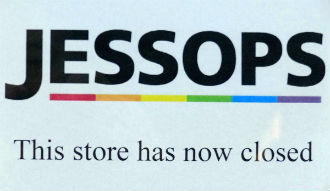 Orange and TalkTalk have once again found themselves in the bottom of a customer satisfaction survey.
Orange and TalkTalk have once again found themselves in the bottom of a customer satisfaction survey.
The pair faced the most complaints in Ofcom’s latest research into the level of service for
major telecoms and pay TV providers between October and December 2012.
Despite the total volume of complaints made to Ofcom falling during the last quarter of 2012 – the sixth consecutive quarter of decline – Orange and TalkTalk still weren’t performing well enough to satisfy their paying customers.
TalkTalk scraped the bottom in the landline telephone market, generating the most complaints during the final quarter of 2012, with 0.36 complaints per 1,000 customers.
Ofcom pointed out, however, that the company’s complaints continued to fall quarter on quarter, although they remained at almost double the industry average, with consumers mainly complaining about service faults and customer service problems.
BT complaints fell slightly from 0.21 complaints to 0.20 complaints per 1,000 customers in Q4 2012, however, it still remained above the average, while Sky and Virgin Media both generated complaints below the industry average.
Virgin Media had the fewest number of complaints, at 0.11 complaints per 1,000 customers, while Sky attracted 0.12 complaints per 1,000 customers.
When it came to broadband Orange usurped TalkTalk to gain the most complaints at 0.70 per 1,000 customers, increasing from 0.50 per 1,000 customers three months earlier.
The data found that complaints about Orange hit a peak in October, which Ofcom said related to the company’s decision to withdraw its free broadband offer unless customers also purchased line rental from the firm.
TalkTalk was the second most complained about broadband provider. Its complaints continued to fall quarter on quarter – from 0.35 to 0.33 complaints per 1,000 customers – although they remained higher than the industry average. BT also generated above average complaint levels at 0.30 per 1,000 subscribers. Sky’s broadband service attracted the fewest complaints at 0.08 per 1,000 customers.
Orange again found itself at the top of the complaints pops when it came to paid mobile services with above average figures of 0.21 per 1,000 customers. This was, again, largely driven by the withdrawal of its free broadband offer.
T-Mobile also generated complaints in excess of the industry average, with consumers mainly complaining about billing and how their complaints were handled. Three’s complaints were equal to the industry average.
O2 was the least complained about mobile provider with 0.06 complaints per 1,000 customers. O2, Virgin Mobile and Vodafone all achieved fewer complaints than the industry average.



















